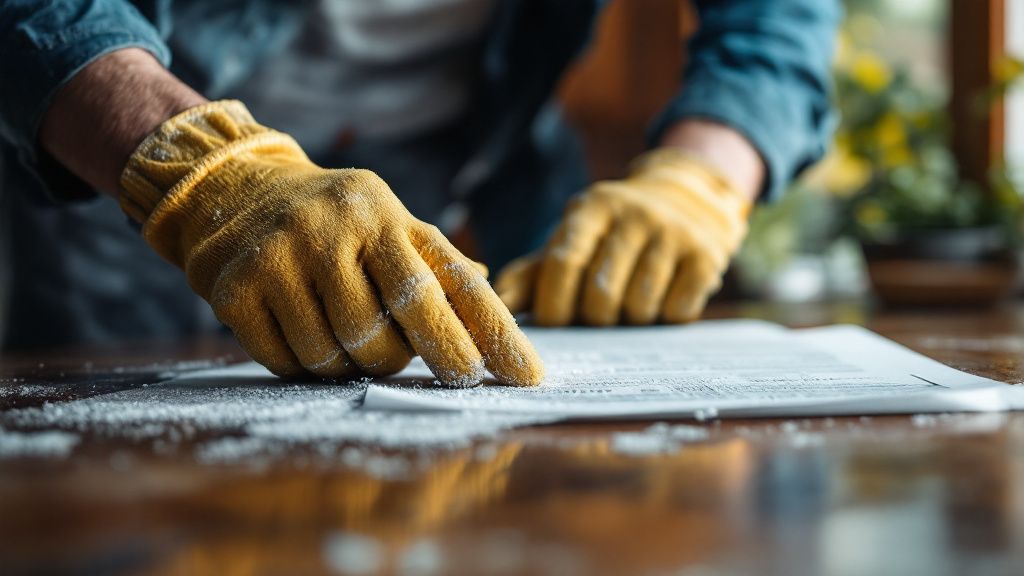Key Takeaways
- Regular property maintenance enhances tenant retention by fostering satisfaction and trust.
- Promptly addressing maintenance requests prevents small issues from escalating.
- Creating a comprehensive maintenance schedule ensures systematic property upkeep.
- Effective communication about maintenance elevates tenant experiences and perceptions.
- Long-term maintenance benefits include increased property value and tenant loyalty.
Maintaining your property can serve as a powerful tool to enhance tenant satisfaction and retention. When you incorporate regular property maintenance into your management routine, you foster an environment where tenants feel valued and heard. Addressing maintenance requests promptly establishes trust and demonstrates your commitment to their comfort. This attentive approach not only prevents small issues from escalating into more significant problems but also ensures your property retains its appeal. When tenants experience a well-managed and visually appealing residence, they're more likely to extend their lease and recommend your property to others. Investing in consistent maintenance creates a harmonious living space that encourages long-term tenant loyalty.

The Role of Property Maintenance in Tenant Satisfaction
Understanding how property maintenance contributes to tenant satisfaction is essential for any property owner. Regular maintenance directly impacts tenants' perception of their living environment. When a property is well-kept and visually appealing, tenants feel more at ease and content in their home. This satisfaction translates to a positive attitude toward the property, leading to prolonged tenancy and reduced turnover rates.
One common question property owners face is about how quickly maintenance requests should be addressed. Prompt attention to such requests is crucial. When tenants see their issues being resolved swiftly, they feel respected and valued. This proactive approach fosters trust and cultivates a positive relationship between tenants and property management.
Incorporating a routine maintenance schedule can also significantly enhance tenant satisfaction. Regular inspections and upkeep help identify potential problems before they escalate, ensuring that the property remains in optimal condition. Tenants appreciate living spaces that are consistently clean, safe, and functional, reinforcing their decision to continue their tenancy.
Effective communication plays a vital role in maintenance-related activities. Keeping tenants informed about scheduled maintenance or unexpected repairs helps manage expectations and minimizes inconvenience. This transparency builds a foundation of trust, making tenants feel more secure in their choice to stay long-term.
Regular Maintenance Tasks to Enhance Tenant Retention
Maintaining your property with regular tasks can significantly boost tenant retention. When you prioritize these tasks, you create a positive living environment that encourages tenants to extend their stay. This proactive approach can lead to lower turnover rates and increased tenant satisfaction, crucial for long-term occupancy.
A frequently asked question is how regular maintenance tasks impact tenant retention. By scheduling routine inspections and addressing issues promptly, you prevent minor problems from developing into costly repairs. Tenants appreciate knowing that their living space is well taken care of, enhancing their overall experience and encouraging them to renew their lease agreements.
There are essential maintenance tasks that play a crucial role in keeping your property desirable. Regularly servicing HVAC systems ensures optimal climate control and reduces energy costs, making the living environment more comfortable for tenants. Ensuring plumbing systems function correctly is equally important, as uninterrupted water flow and functional fixtures are a basic expectation for any tenant.
Landscaping is another vital task that can influence tenant retention. Well-maintained outdoor spaces not only boost curb appeal but also provide tenants with enjoyable areas to relax. Routine tasks like lawn care, trimming bushes, and clearing pathways improve the property's appearance and show tenants they occupy a well-cared-for environment.
Keeping communication open regarding maintenance schedules and completed tasks helps in managing tenant expectations. When tenants are informed and see maintenance activities being performed seamlessly, it reinforces their decision to stay. Tenants value transparency and efficiency, and these elements are key to fostering a sense of community and stability within your property.
Creating a Maintenance Schedule
Creating a maintenance schedule is essential for maintaining a well-functioning property and enhancing tenant retention. A maintenance schedule ensures that regular tasks are planned and executed systematically, reducing the likelihood of unexpected issues. Tracing its evolution from early property management practices, routine scheduling has become a cornerstone in property management, providing structure and assurance to both landlords and tenants. This historical context highlights the importance of systematically planned maintenance in fostering long-term tenant relationships.
To design an effective schedule, consider dividing tasks into categories such as daily, weekly, monthly, and seasonal. This approach ensures that all aspects of property maintenance are covered efficiently. Daily tasks might include cleaning common areas, while seasonal checks could focus on weatherproofing or pest control. RentalRiff helps landlords stick to this structure by assigning a dedicated property specialist who follows a custom maintenance schedule tailored to your property’s unique needs—making proactive upkeep effortless and consistent. Addressing maintenance requests in a timely manner is also crucial; integrating these into your schedule helps manage workloads and guarantees tenants' concerns are promptly addressed. By committing to a comprehensive maintenance schedule, you establish a proactive management approach that preserves property value and satisfies tenants.
Communication with Tenants About Maintenance
Effective communication with tenants about maintenance is crucial for building trust and enhancing retention. Clearly conveying maintenance schedules and updates ensures tenants are aware of what's happening around their living environment. This transparency helps manage expectations and reduces potential frustration, creating a more harmonious tenant experience.
Looking at tenant communication through the lens of empathy, we see that understanding tenants' perspectives can significantly boost satisfaction. When tenants feel heard and respected, their perception of your property's management improves. Promptly acknowledging and addressing maintenance requests is an integral part of this empathetic approach, reinforcing tenant loyalty.
Providing multiple channels for maintenance communication, such as emails, digital portals, or notice boards, caters to different tenant preferences. This flexibility makes it easier for tenants to report issues and stay informed. Keeping lines of communication open ensures tenants feel comfortable reaching out about their maintenance needs, contributing to a positive living environment.
Regularly updating tenants on the progress of maintenance requests fosters a sense of inclusion and security. Ensuring they are kept in the loop throughout the process reinforces your commitment to their well-being. By enhancing communication strategies, you create a community atmosphere where tenants feel valued and are more likely to remain long-term.

The Long-Term Benefits of Regular Maintenance
Regular maintenance offers numerous long-term benefits that significantly impact tenant retention. By keeping your property in optimal condition, you not only safeguard its value but also create a satisfactory living environment. When tenants see consistent upkeep, they feel assured about the property's quality, which contributes to their decision to stay.
Regular maintenance also prevents the deterioration of essential property features. By performing tasks such as cleaning gutters, inspecting roofs, and servicing appliances, you mitigate potential damage and extend the life of your property assets. This longevity further enhances the appeal of your property, ensuring tenants are less likely to seek alternatives.
Moreover, addressing maintenance requests efficiently fosters a supportive community atmosphere. Tenants appreciate a responsive management style that prioritizes their well-being. When they see their concerns being swiftly addressed, they are more inclined to form positive relationships with management, strengthening their commitment to remain part of your property for the long haul.
Frequently Asked Questions
How does regular property maintenance improve tenant retention?
Regular maintenance creates a satisfactory living environment, leading to higher tenant satisfaction and increased likelihood of lease renewals.
What maintenance tasks are important for tenant retention?
Tasks like routine HVAC servicing, plumbing checks, and landscaping are crucial in maintaining property value and tenant comfort.
How often should maintenance tasks be performed?
The frequency varies, but tasks are generally categorized as daily, weekly, monthly, or seasonal, depending on their nature and urgency.
How can I effectively communicate maintenance schedules to tenants?
Use multiple communication channels such as emails, digital portals, or notice boards to keep tenants informed and manage expectations.
What long-term benefits does regular maintenance provide?
Regular maintenance preserves property value, reduces emergency repair costs, and fosters strong tenant-landlord relationships.

